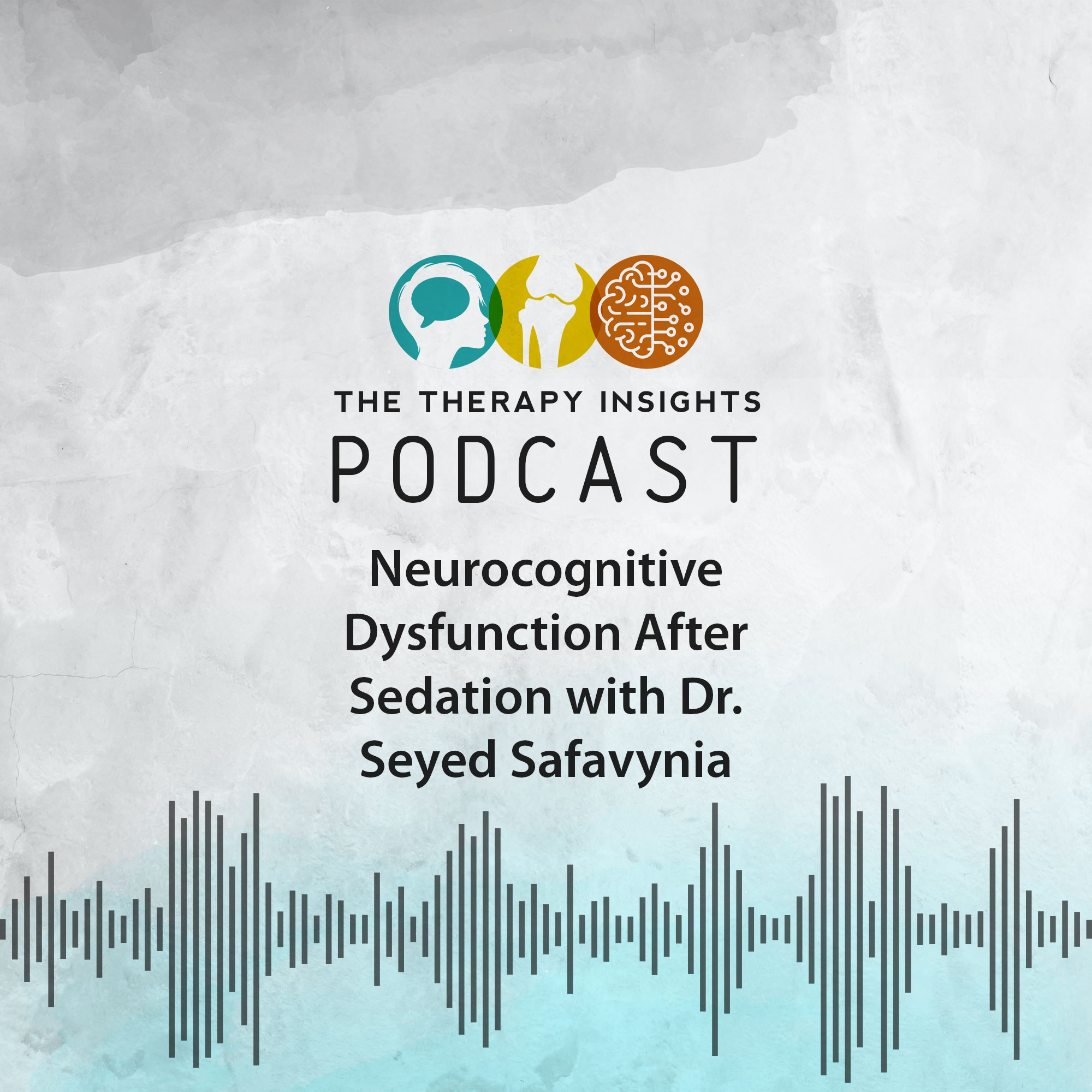;)
October 05, 2022
Perioperative neurocognitive disorders (PND) are a group of cognitive disorders that manifest in relation to surgery and anesthesia (Evered et al., 2018a) and encompass former classifications of perioperative cognitive impairments, including postoperative delirium (POD) and postoperative cognitive dysfunction (POCD). PND are common following anesthesia and surgery, affecting up to 65% of adults over age 65 years (Rudolph and Marcantonio, 2011).
In this episode, we discuss:
- What post operative cognitive dysfunction (POCD) is and the shift towards new nomenclature that aligns with the DSM-V and new ICD-10 codes.
- Risk factors for developing perioperative neurocognitive disorders (PND).
- What therapists can do to contribute to a proactive interdisciplinary approach to manage perioperative neurocognitive disorders when they do occur.
- A proposed brain ERAS (Enhanced Recovery after Surgery) protocol to reduce the risk of PND.
Guest(s)
Seyed Safavynia, M.D., Ph.D.
Episode notes / links
- Safavynia, S. A., Goldstein, P. A., & Evered, L. A. (2022). Mitigation of perioperative neurocognitive disorders: A holistic approach. Frontiers in Aging Neuroscience, 14.
- Safavynia, S. A., & Goldstein, P. A. (2019). The role of neuroinflammation in postoperative cognitive dysfunction: moving from hypothesis to treatment. Frontiers in psychiatry, 9, 752.
-
Free PDF handout: Peri-operative Neurocognitive Disorder (PND)
Includes a visual of the new terms that are discussed, the ICD-10 codes, and a copy of the proposed brain Enhanced Recovery after Surgery (ERAS) protocol that Dr. Safavinya refers to. - Hospital Elder Life Program (HELP)
